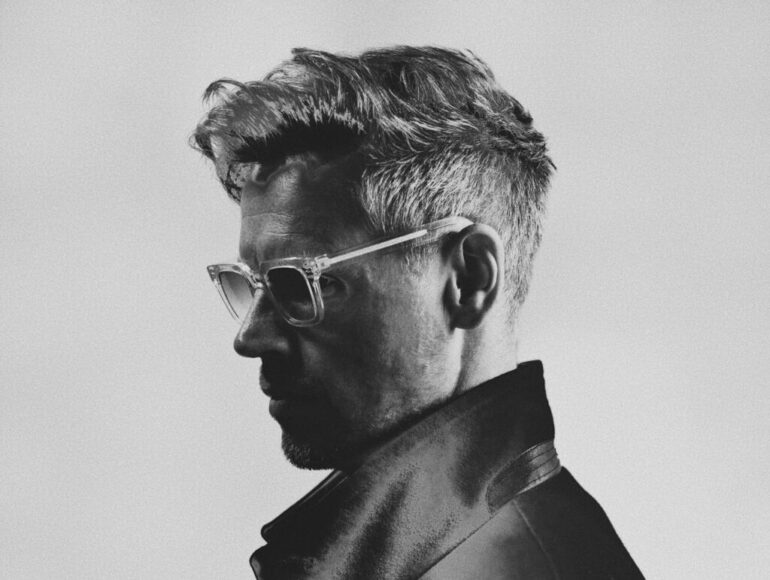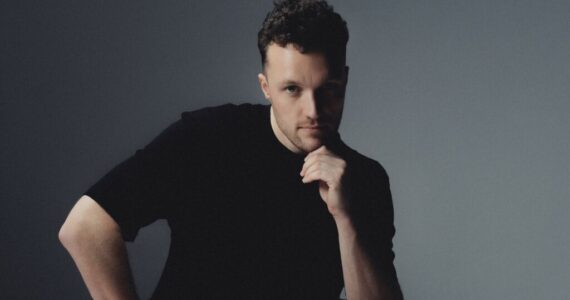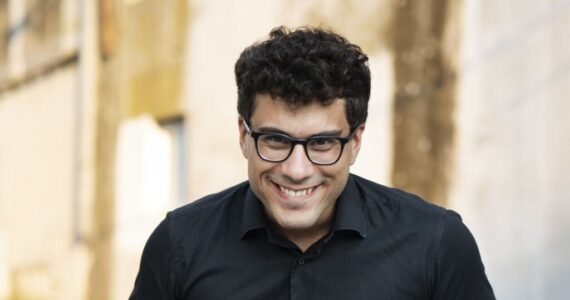Featured image © Bastiaan Woudt
Few artists in electronic music embody timeless artistry and evolution like Joris Voorn. From his earliest releases to his status today as one of the most respected figures on the global scene, Voorn has consistently pushed beyond genre boundaries while staying true to his melodic roots. With the release of his new album Serotonin, he invites listeners on perhaps his most personal journey yet. Written over several years, in hotel rooms, airplanes, his Amsterdam studio, and even his childhood home, the album carries both intimate reflection and dance floor energy. Deeply influenced by moments of loss, family legacy, and new beginnings, Serotonin blends emotional depth with forward-thinking production — a testament to an artist fully growing into his own sound.
Your new album Serotonin was written over several years, in your studio, on tour, and even in your childhood home. How did these different environments influence the mood and sound of the record?
I’m not sure if the environments had specific effects on the moods of the record but working on a laptop on a plane vs in my studio where I have so much more hardware, synths, guitars and other instruments – I’d say the main difference was the limitations of the environment itself.
A pivotal moment in the album’s creation was your return to your family home after your parents’ passing. What was it like recording music on the same piano your father once played, especially now that you’ve shared a video of your own son following in your footsteps?
It was profoundly emotional and in some ways very therapeutic. Like you said I was sitting writing in the exact space my father, who was an acclaimed composer, used to work. I’m glad that those sessions happened and from them came Session One – the opening track of the album.
Do you think your classical upbringing, particularly your father’s legacy as a composer, is now more present in your work than ever before?
The family home I grew up in was very musical but my father and I were on very different musical paths. Our home was always filled with music but I was always drawn to styles of music away from classical.
The album blends a wide range of styles and breaks genre boundaries in a seamless way. How did you maintain cohesion while exploring such a broad sonic palette?
Well the album started as a collections of 80 to 90 demos I’d created and the original intention was to make it in two parts with the first being more dance floor focused and the second being more ambient. So the finished SEROTONIN album was always meant to be for the dance floor and I think it’s achieved that with most of the tracks on it being key records from my sets in the last six months to a year.
You’ve collaborated with artists like Goodboys, Tom Walker, YOTTO, White Lies, Nathan Nicholson and Jan Blomqvist. What did these collaborators bring to Serotonin?
Strong vocals, lyrics and narrative on the whole but also 3rd party perspective – which is interesting to consider when you’re mostly working solo for long days and nights in your own private writing space.
Was there a particular track or collaboration that surprised you the most in terms of how it came together or how it turned out?
I think Moon is a track that didn’t necessarily surprise me but the lyrics and the song itself really resonated with personal experiences of mine from when I was young and as a result you could say I have a particular soft spot for it.
You’ve described this album as a moment of growing into your own sound and no longer chasing trends. Being called an electronic maestro for years now, what does it sound like to you and your role on the scene?
I’m not sure I understand the question, but I do agree that this album enabled me to really dive deep into my more melodic side without feeling any obligation or pressure to conform to any outside influence or trend. I never feel the need to conform anyway but the only external influence I considered when finishing the tracks – was whether they worked on the dancefloor.
What advice would you give to young producers needing the confidence to just follow their instinct?
As long as your instinct is to be original and authentic – then follow that instinct. Don’t mimic others or you’ll get lost in the other 100K records that get released every day.
After five studio albums and countless milestones, what does creative success mean to you today and what’s next for Joris Voorn?
I think being able to continuously tour the world and play the music I make to the best clubs and festivals – that for me is a privilege and a joy that I never take for granted. What’s next? I’m deep into so many different projects, collaborations, my Trip To Galaxy concept is something I want to tour next year so I’m allocating more time to that. I want to keep evolving and keep producing fresh and interesting soundscapes for people to enjoy both on the dance floor or at home.











